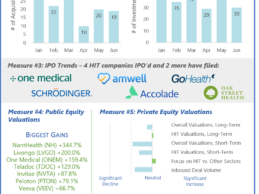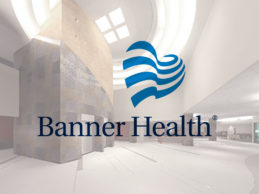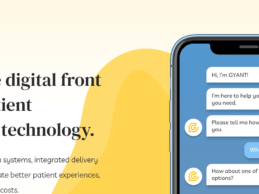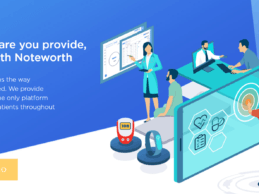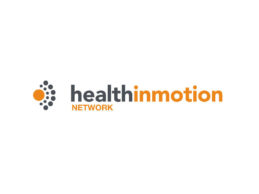What You Should Know:
- Microsoft released the public preview of Azure IoT
Connector for FHIR (Fast Healthcare Interoperability Resources), the latest
update to the Microsoft Cloud for Healthcare.
- The Azure IoT Connector for FHIR makes it easy for
health developers to set up a pipeline to manage protected health information
(PHI) from IoT devices and enable care teams to view patient data in context
with clinical records in FHIR.
This week, Microsoft released the preview of
Read More
Health IT | News, Analysis, Insights - HIT Consultant
Top 3 Priority Areas for Healthcare CIOs in the Age of COVID-19
What You Should Know:
- In the age of COVID-19, healthcare CIOs cite interoperability,
cybersecurity, and operationalizing SDOH data priorities as top three priority
areas, according to the third annual LexisNexis focus group of CHIME
executives.
- The survey results also highlighted the importance of
a team approach with support across the organization in helping CIOs
achieve the vision of connected healthcare.
The Health Care business of LexisNexis® Risk
Read More
Desert Oasis Healthcare Deploys FHIR-based Tool For COVID-19 Screening to Over 7,500 Patients
What You Should Know:
- Using the EHR-integrated app, Desert Oasis Healthcare efficiently identifies patients with possible Coronavirus symptoms, mitigating the spread, and optimizing treatment.
- Starting in mid-March, DOHC has leveraged Rimidi’s novel, Fast Healthcare Interoperability Resources (FHIR) based patient-reported outcomes (PROs) tool.
- To date, over 7,400 patients have been screened prior
to their appointments and 831 have been monitored during self-isolation due
Read More
Cohere Health Launches with $10M to Increase Transparency Across Care Journey
What You Should Know:
- Boston-based health IT start-up Cohere Health announced the official launch of its company with a $10 million Series A funding round led by Flare Capital Partners.
- The company’s patient journey-focused platform improves the notoriously difficult prior authorization process and replaces an existing patchwork of legacy, siloed processes, and antiquated technologies that contribute to the enormous administrative burden for physicians and health plans.
- The end
Read More
HGP Semi-Annual Health IT Market Review: 6 Key Trends to Know
Healthcare Growth Partners, an
Investment Banking and Strategic Advisory firm exclusively focused on the
transformational health
IT market, today announced the release of its Semi-Annual Health IT Market
Review report that summarizes M&A and private equity activity across health
IT, health information services, and digital health.
Report Background/Methodology
This edition of the report includes feedback from our survey
of private equity professionals and their response to
Read More
Banner Health to Implement Cerner Revenue Cycle Management Across Enterprise
What You Should Know:
- Cerner and long-time client Banner Health announced
a new deal to implement a comprehensive suite of revenue cycle management
solutions as part of a long-standing strategic alignment to use health care
technology to drive population health improvement.
- The revenue cycle integration will take place across
Banner Health’s entire system, including 28 hospitals and clinics in six
states.
Banner Health and Cerner,
today announced it is expanding
Read More
GYANT Raises $13.6M for AI-Enabled Digital Front Door Solution to Drive Patient-Doctor Engagement
What You Should Know:
- GYANT raises $13.6M in Series A funding for AI-enabled digital front door solutions to drive meaningful patient-doctor engagement.
- The investment will enable GYANT to scale up its product development to meet rapidly increasing market demand and support its exponential customer growth.
- Current customers include Intermountain Healthcare, OSF
Healthcare, Adventist Health, Health First, Integris, etc.
GYANT, a San Francisco, CA-based care navigation
Read More
Curavi Health, CarePointe, U.S. Health Systems Merge to Form Arkos Health to Power Virtual Care for Seniors
Curavi Health, CarePointe, U.S. Health Systems announced a merger agreement to form Arkos Health. Arkos Health will provide virtual care solutions and health insights to vulnerable populations across the United States. These three entities will become wholly-owned subsidiaries of Arkos Health, and the executive leadership teams will be merged. UPMC will continue to own a financial stake in Arkos Health, while remaining both a customer and service provider.
CarePointe, founded in 2015 and
Read More
Noteworth Lands $5M to Expand All-in-One Care Delivery Platform
What You Should Know:
- Noteworth, a first-of-its-kind Digital Healthcare
platform for modernizing Digital Medicine delivery operations, secured a $5
million oversubscribed seed funding round led by Laconia Capital Group
- With this investment, the company will continue to
build upon the delivery of Noteworth’s first-of-its-kind Digital Healthcare
platform.
Noteworth,
a Hoboken, NJ-based all-in-one-care delivery platform for modernizing digital medicine
delivery
Read More
Health in Motion Network, Updox Integrate to Improve Pharmacy Care Amid COVID-19 Pandemic
What You Should Know:
- Health in Motion Network announced a partnership with Updox to integrate its HIPAA-compliant virtual health software into the Health in Motion Network’s consumer-direct pharmacy platform, ERxDirect.
- ERxDirect powered by Updox uniquely connects local
health care, community pharmacies and urgent care centers with the innovation
they need to remotely communicate with patients, which has become more
essential than ever due to the COVID-19 pandemic.
- By partnering
Read More





